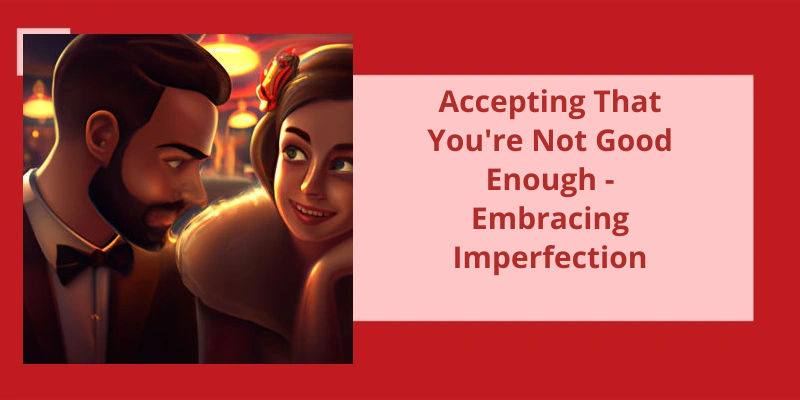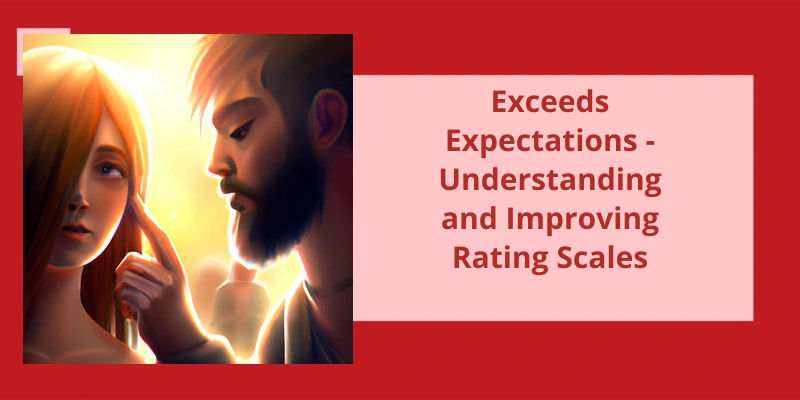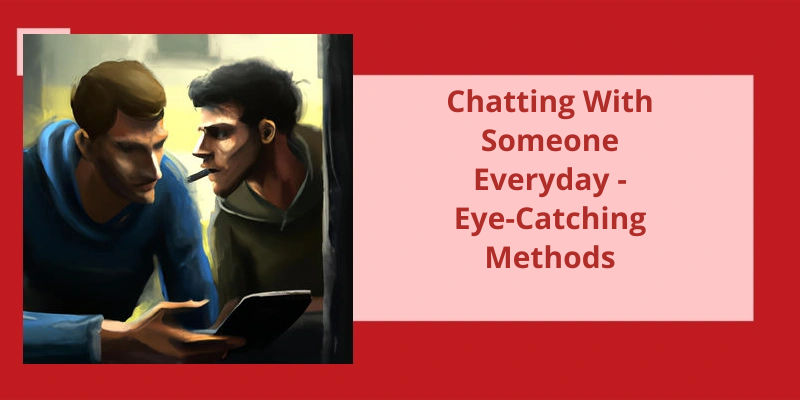As humans, we often strive for greatness and excellence in everything we do. However, the harsh reality is that we aren’t perfect beings and are bound to make mistakes or fall short of our expectations at some point. Accepting that we aren’t good enough in certain aspects of our lives can be a difficult pill to swallow, especially in a society where perfection is glorified and celebrated. It requires vulnerability, humility, and a willingness to acknowledge our flaws and limitations. But contrary to popular belief, accepting that we aren’t good enough can be liberating and empowering. It allows us to let go of unrealistic expectations and embrace our true selves, imperfections and all. Ultimately, it’s through acknowledging and accepting our shortcomings that we can grow, learn, and become better versions of ourselves.
How Do You Accept Others Flaws?
Accepting others flaws is an important part of building strong and healthy relationships. The truth is that no one is perfect and expecting perfection from others will only lead to disappointment, frustration, and conflict. However, accepting flaws is often easier said than done. It can be challenging to deal with certain behaviors, attitudes, or habits that rub us the wrong way. But with some effort and mindfulness, it’s possible to cultivate a more accepting and compassionate approach towards others.
One tip for becoming more accepting is to reevaluate the seriousness of your partners flaws. You may find that your perception of their flaws is magnified by your own insecurities, fears, or biases. Take a step back and try to see things from a more objective and rational perspective. Ask yourself whether the flaw in question is really that significant in the grand scheme of things. By putting things in perspective, you may find that you’re able to let go of some of your judgments and criticisms.
Consider why particular flaws irk you so much. Sometimes, the things that bother us about others aren’t really about them but about us. For example, if you get irritated by someone who’s always late, it may be because you’ve a deep-seated anxiety about time management. By understanding the root of your reactions, you can develop more awareness and control over your emotions.
We all have different priorities, preferences, and values, and it’s unfair to impose our standards on others. Just because something is important to you, it doesn’t mean that it should be important to your partner. Instead of trying to change someone else, focus on respecting their choices and finding common ground.
By reevaluating your perceptions, acknowledging your own flaws, understanding your reactions, respecting others values, and taking action when necessary, you can build stronger, healthier, and more fulfilling relationships based on mutual acceptance and compassion.
Strategies for Communicating With Someone About Their Flaws in a Constructive and Respectful Manner
- Focus on behaviors or actions, not character traits
- Use “I” statements instead of “you” statements
- Offer specific feedback and suggestions for improvement
- Acknowledge their feelings and perspective
- Listen actively and seek to understand their point of view
- Avoid blaming, shaming, or attacking
- Choose an appropriate time and place for the conversation
- Be patient and allow for processing time
- Express empathy and support
- End the conversation on a positive note
Learning to accept your partner can be a challenging but rewarding journey. It requires a shift in mindset and a willingness to work on yourself as well. In this article, we’ll explore some practical ways to cultivate acceptance and understanding in your relationship. From adjusting your expectations to focusing on the present moment, these tips can help you create a more loving partnership. So, let’s dive in and discover how you can learn to accept your partner for who they are.
How Do I Learn to Accept My Partner?
Learning to accept your partner isn’t an easy task, and it requires a lot of personal growth and reflection. The first step to accepting your partner is to start accepting yourself. This means taking personal responsibility for your emotions and actions, as well as learning to love yourself. Once you learn to love and accept yourself, it becomes easier to love and accept your partner for who they are.
Another way to become more accepting of your partner is to practice positive thinking. This means focusing on the good aspects of your relationship instead of dwelling on the negatives. When you practice positive thinking, you become more optimistic and compassionate, which can help you deal with any challenges that arise in your relationship.
It’s also important to avoid thinking in black and white when it comes to your relationship. Relationships aren’t always perfect, and there will be ups and downs along the way. By accepting your partners flaws and imperfections, you can learn to appreciate their unique qualities and deepen your connection.
Stop judging yourself is also a crucial aspect of accepting your partner. Often, we judge ourselves harshly, which can negatively impact our relationships. By practicing self-compassion and forgiveness, you can learn to love and accept yourself, which in turn, allows you to love and accept your partner on a deeper level.
Finally, it’s essential to focus on the present moment in your relationship. Instead of worrying about the future and what might happen, try to be fully present and engaged in the moment. This will help you appreciate your partner and your relationship more fully, and it can also help you develop a stronger bond.
Source: Relationship Tips: 7 ways to be more accepting of your partner
Learning to accept our flaws is a crucial step towards embracing our true selves. It’s a process that requires self-awareness, honesty, and compassion. While it can be challenging to deal with our imperfections, accepting them can lead us to personal growth and self-improvement. Let’s delve deeper into what accepting our flaws entails and how we can make the most of this transformative journey.
What Does Accept the Flaws Mean?
Accepting our flaws means realizing that we aren’t perfect and that we all have weaknesses. It means accepting those parts of ourselves that we wish were different, the mistakes we’ve made along the way, and the personality traits that may not be the most appealing. It also means understanding that these flaws don’t make us any less worthy or valuable as human beings.
It means allowing ourselves to be open and honest about our struggles and shortcomings, rather than trying to hide them or pretend they don’t exist. This can be a difficult process, but it’s an important step towards self-acceptance and personal growth.
It means recognizing that we’re all imperfect beings who’re capable of both good and bad, and choosing to love ourselves and others in spite of our faults. It’s a powerful act of self-care and healing that can lead to greater self-awareness, self-esteem, and overall well-being.
How to Challenge Negative Self-Talk and Cultivate Self-Compassion When Accepting Our Flaws
- Recognize negative self-talk patterns
- Challenge negative self-talk by questioning it’s validity
- Replace negative self-talk with self-compassionate language
- Cultivate forgiveness and acceptance of flaws
- Practice self-care and positive self-affirmations
- Seek support from loved ones or a therapist
Building acceptance in a relationship can be a challenging but rewarding process. It requires a level of patience, empathy, and open-mindedness towards your partner’s differences. In this article, we will explore some practical steps you can take to strengthen your relationship by accepting your partner’s flaws and embracing their strengths. By treating your partner with respect, love, and care, you can create a safe and supportive environment that encourages growth and fosters deeper intimacy.
How Do You Build Acceptance in a Relationship?
Building acceptance in a relationship is a crucial aspect of strengthening the bond between partners. It involves accepting your partner for who they are, flaws and all. Make them feel heard and valued, be empathetic and supportive towards them, and always be open to communication.
Accept that your partner has imperfections and celebrate their successes. Don’t try to change them or mold them into something they’re not. Instead, focus on their positive traits and help them improve upon their weaknesses. Show them that you accept them for who they’re and appreciate them anyway.
Respect is another element that plays a significant role in building acceptance in a relationship. Your partner may have beliefs, opinions, and values that differ from yours, but it’s important to respect them nonetheless. Listen to their points of view and communicate your own without disrespecting theirs. This shows that you value their ideas and are willing to work through any differences.
It’s also crucial to encourage your partner to grow and improve themselves. Whether it’s personal or professional growth, support and guide them through their journey. This shows that you’re invested in their well-being and are willing to help them become the best version of themselves. Provide constructive feedback and be their cheerleader when they need it.
It takes time to fully embrace your partners flaws and differences, but with the right mindset, it’s possible. Remember to treat them with respect, appreciate their strengths, respect their beliefs, and encourage their growth. In doing so, you can build a strong and lasting bond with your partner.
It’s common to feel inadequate or not good enough at times, but dwelling on these feelings can be harmful to our mental health. Instead of comparing ourselves to others, it’s important to shift our focus towards self-improvement and self-love. Here are some practices that can help stop the cycle of self-doubt and guide you towards a positive mindset.
How Do I Accept That I’m Not Good Enough?
One of the most challenging things to accept in life is that you may not be good enough in some aspects. This feeling of inadequacy can lead to self-doubt, insecurities, and ultimately, a lack of confidence. It’s essential to recognize that you aren’t alone in this and that many people go through this struggle. To start accepting that youre not good enough, it’s essential to practice self-compassion and kindness towards yourself.
One of the main practices to stop feeling like youre not good enough is to stop comparing and competing with others. In todays society, were often encouraged to measure our worth based on external factors, which can lead to unrealistic expectations and self-criticism. Instead, focus on your unique strengths and talents, and celebrate your accomplishments, no matter how small they may seem.
Recalling past achievements can help you build confidence and remind you that you’re capable of achieving great things. Take time to reflect on your past successes, and what you did to accomplish them. It’s crucial to remember that everyone has their own journey, and your accomplishments should be celebrated, no matter how they compare to others.
Another powerful practice is to focus on the process rather than the results. Often, we become fixated on outcomes and forget about the steps we took to get there. By focusing on the process, you can learn from your experiences and grow in ways that will serve you in the long run.
Speaking to a close friend who can provide emotional support and encouragement can also be beneficial in accepting that youre not good enough. Sharing your thoughts and feelings with someone can provide a fresh perspective and help you feel less alone in your struggles. They might also be able to offer advice or guidance that can help you move forward.
Completing an act of kindness for someone else can also shift your focus away from your own shortcomings and towards helping others. Simple acts of kindness, such as holding the door open for someone, can give you a sense of purpose and fulfillment that can help lift your mood and improve your overall outlook on life.
If your struggles with feelings of inadequacy persist, seeking therapy or professional help may be a good option. A therapist can help you work through your emotions, identify underlying issues, and develop coping strategies that can help you feel better about yourself and your abilities.
Remember that you’re worthy, lovable, and deserving of happiness, no matter what your strengths and weaknesses may be.
Accepting one’s flaws is easier said than done, but it’s a crucial step towards personal growth and self-love. In this article, we’ll explore six practical and effective ways to embrace imperfections and celebrate them as essential parts of who we are. By finding positivity in our flaws, recognizing our humanity, drawing inspiration from art, prioritizing flow state, surrounding ourselves with positivity, and using our flaws to help others, we can turn our weaknesses into strengths and live more fulfilling lives. Let’s dive in!
How Do You Accept Your Flaws?
Accepting your flaws is a process that can help you become more confident and happier in life. Your flaws can be seen as opportunities for growth and learning, so embrace them and focus on what you can learn from them. Remember that nobody is perfect, and it’s okay to have flaws.
Everyone has flaws, and they’re a part of who we are. Embrace your flaws and don’t try to hide them. Instead, use them to connect with others and show your unique personality.
Art can be a great source of inspiration when it comes to accepting your flaws. Many artists celebrate imperfection in their work, and you can do the same in your life. This can help you see that flaws can be beautiful and unique.
Instead of consistently striving for perfection, focus on flow state. Flow state involves being fully immersed in an activity, where time seems to fly by and you feel completely engaged with what youre doing. By focusing on flow state instead of perfection, you can learn to embrace the process of learning and growing instead of just the end result.
Finally, use your imperfections to help others. Your unique experiences and struggles can be inspiring to others who may be going through similar situations. By sharing your story, you can help others see that it’s okay to have flaws and that they aren’t alone in their struggles. This can be a powerful way to connect and build empathy with others.
Strategies for Building a Positive Self-Image Despite Flaws
- Practice self-compassion and self-forgiveness
- Avoid comparing yourself to others
- Foster positive relationships with people who support and uplift you
- Keep a gratitude journal to focus on the good in your life
- Engage in activities that make you feel good about yourself
- Challenge negative self-talk and replace it with positive affirmations
- Set achievable goals and celebrate your accomplishments
- Take care of your physical health through exercise and a balanced diet
- Practice mindfulness and meditation to reduce stress and increase self-awareness
- Seek professional help if needed to address any underlying mental health concerns
Conclusion
In life, it’s common to feel inadequate or insufficient in various ways. It can be challenging to accept that you aren’t good enough in certain areas, and it can be emotionally difficult to confront those limitations. However, accepting that you aren’t good enough is a necessary step in personal growth and development. This self-awareness can lead to a greater understanding of your strengths and weaknesses, allowing you to focus your energy on what you excel at and make efforts to improve in areas where you struggle. Embracing your imperfections and using them to grow is the mark of true strength and resilience.






